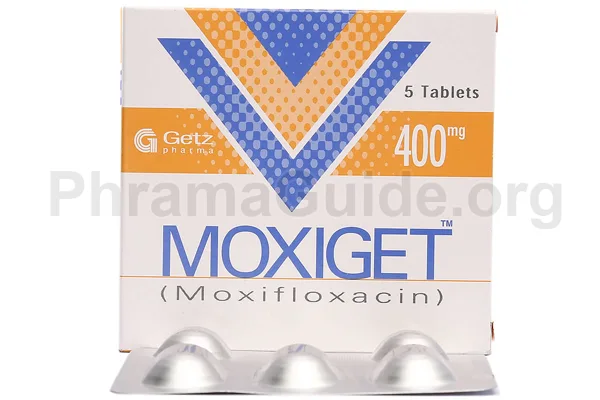Moxiget is primarily used for the treatment of various bacterial infections such as sinusitis, pneumonia, and skin infections (cellulitis and abscesses). It is a broad-spectrum antibiotic that belongs to the fluoroquinolone class of drugs. Following are some common uses of Moxiget Tablet:
- Respiratory Tract Infections: Moxiget tablet is commonly used for the treatment of respiratory tract infections, including acute bacterial sinusitis, community-acquired pneumonia (CAP), and chronic bronchitis caused by susceptible bacteria.
- Skin and Soft Tissue Infections: Moxiget tablet is used to treat skin and soft tissue infections, such as cellulitis, abscesses, and wound infections.
- Intra-abdominal Infections: Moxiget tablets may be used for intra-abdominal infections, including complicated intra-abdominal abscesses and peritonitis.
- Urinary Tract Infections: Moxiget tablet can be used to treat uncomplicated urinary tract infections (UTIs) caused by susceptible bacteria.
- Sexually Transmitted Infections: Moxiget tablet is effective against certain sexually transmitted infections (STIs), particularly uncomplicated urethritis and cervicitis caused by Chlamydia trachomatis.
Off-label Uses of Moxiget Tablet
- Chronic Bacterial Prostatitis: Moxiget tablets may be used off-label for the treatment of chronic bacterial prostatitis, long-term inflammation of the prostate gland caused by bacterial infection.
- Tuberculosis (TB): In some cases, Moxiget tablet is used as part of combination therapy for the treatment of drug-resistant tuberculosis when other conventional medications are not effective or cannot be tolerated.
- Atypical Infections: Moxiget tablets may be used for the treatment of certain atypical infections, including Mycoplasma pneumoniae, Legionella pneumophila, and Chlamydia psittaci infections.
- Bacterial Conjunctivitis: Moxiget tablet can also be used in adjunctive therapy as an alternative drug of choice in bacterial conjunctivitis.

What is Moxiget?
Moxiget is one of the leading brands of Moxifloxacin, manufactured and marketed by Getz Pharmaceuticals, Pakistan.
Moxiget Alternatives : Other Similar Brands
Following are some alternative brands of Moxiget and their manufacturers.
- Avelox : Bayer Schering Pharma.
- Mofest : Sami Pharmaceuticals, Pakistan.
- Moxibact : Continental Chemical Company (Pvt) Ltd, Pakistan.
- X-Gen : Genix Pharma (Pvt) Ltd, Pakistan.
- Izilon : Bosch Pharmaceuticals, Pakistan.
- Xefacta : Hilton Pharmaceuticals, Pakistan.
- Abomox : Abbott Laboratories.
- Moxigan : Barrett Hodgson Pakistan (Pvt) Ltd.
- Moxifo : Tabros Pharma, Pakistan.
- Veloxin : Pacific Pharmaceuticals, Pakistan.
Moxiget : Available Formulations and Strengths
Presently, Moxiget is available in Tablet and Infusion Forms
Moxiget Tablet : 400mg strength
Moxiget Infusion : 400mg/250ml strength
Who Should Not Use Moxiget?
However, there are certain conditions that can contraindicate the use of Moxiget or make it less effective.
People who have a history or family history of tendon problems should not use Moxiget due to an increased risk of tendon rupture or tendonitis (inflammation).
Patients with kidney disease may require dosage adjustment due to possible accumulation in the body leading to toxicity or adverse reactions.
People who have had seizures or other neurological disorders should not use Moxiget due to an increased risk for neurological side effects including confusion and hallucinations.
Pregnant women and nursing mothers should avoid using Moxiget unless directed by their doctor due to potential risks to the fetus/infant from drug exposure in utero/breastmilk respectively.
What is the Recommended Daily Dosage of Moxiget?
Moxiget Tablet Dose for Adults: 1 tablet (400mg) once a day.
Moxiget Infusion Dose for Adults: 1 infusion (400mg/250ml) once a day administrated intravenously (IV).
Moxiget Infusion can be as administrated as 5mg/kg of body weight IV every 24 hours
How Moxiget Works?
Moxiget is a DNA gyrase inhibitor drug. It works to stop bacterial replication by binding to DNA Gyrase (topoisomerase enzyme) in bacteria.

Leave A Comment